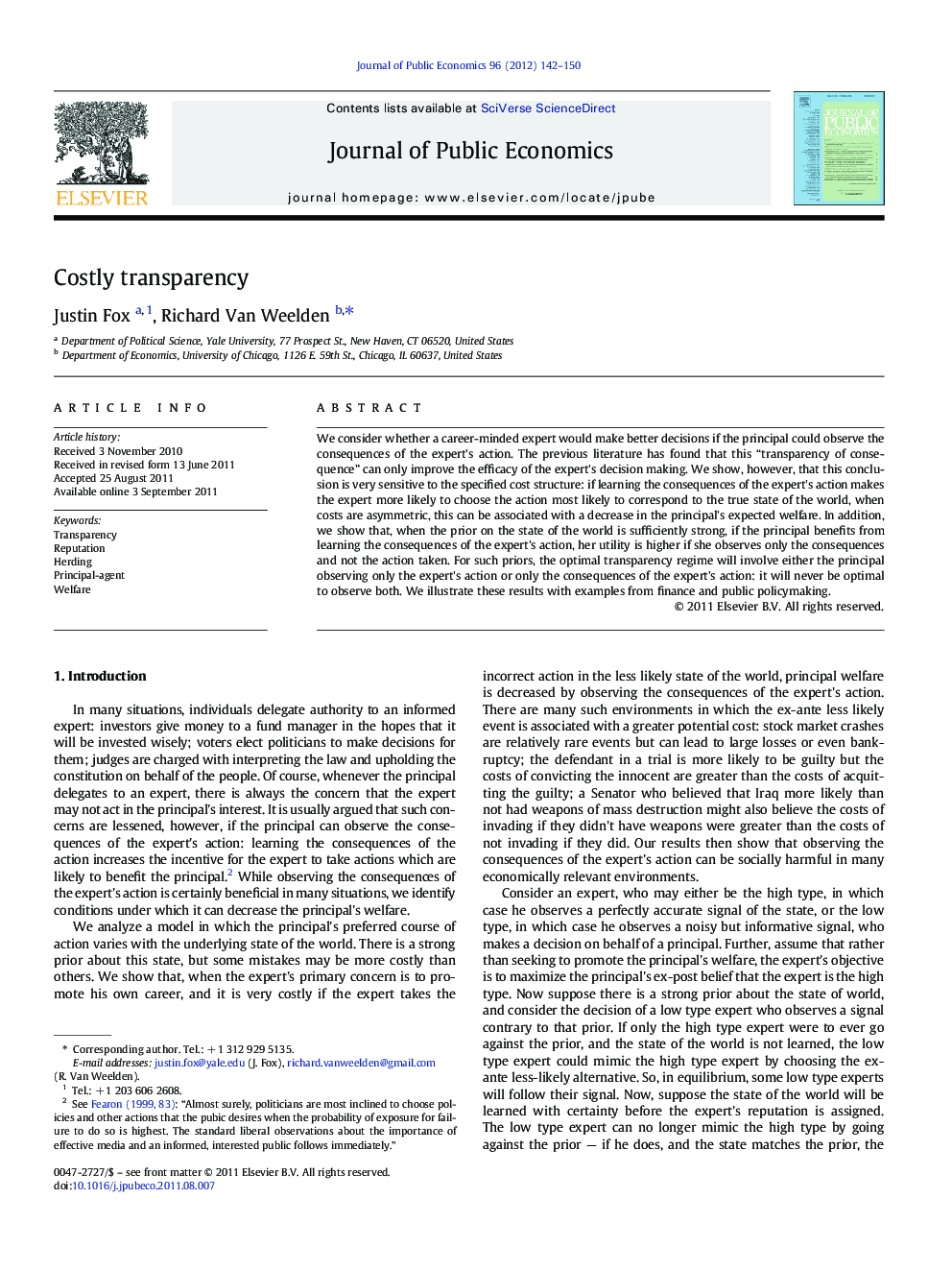| Article ID | Journal | Published Year | Pages | File Type |
|---|---|---|---|---|
| 969256 | Journal of Public Economics | 2012 | 9 Pages |
We consider whether a career-minded expert would make better decisions if the principal could observe the consequences of the expert's action. The previous literature has found that this “transparency of consequence” can only improve the efficacy of the expert's decision making. We show, however, that this conclusion is very sensitive to the specified cost structure: if learning the consequences of the expert's action makes the expert more likely to choose the action most likely to correspond to the true state of the world, when costs are asymmetric, this can be associated with a decrease in the principal's expected welfare. In addition, we show that, when the prior on the state of the world is sufficiently strong, if the principal benefits from learning the consequences of the expert's action, her utility is higher if she observes only the consequences and not the action taken. For such priors, the optimal transparency regime will involve either the principal observing only the expert's action or only the consequences of the expert's action: it will never be optimal to observe both. We illustrate these results with examples from finance and public policymaking.
► We consider the effect of different forms of transparency on the behavior of a career-minded agent. ► When costs are asymmetric, observing the consequences of the expert's action can decrease the principal's expected welfare. ► When transparency with respect to consequences is beneficial, transparency with respect to action can be harmful. ► We illustrate our theoretical findings with examples from finance and public policymaking.
